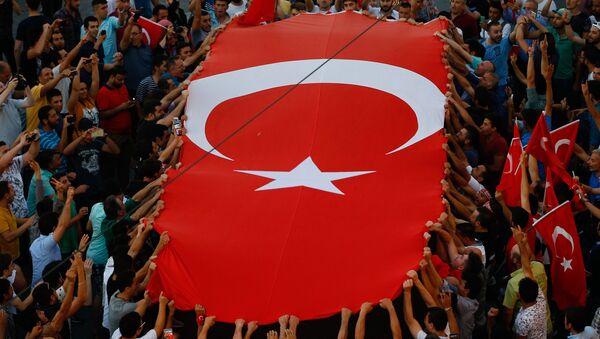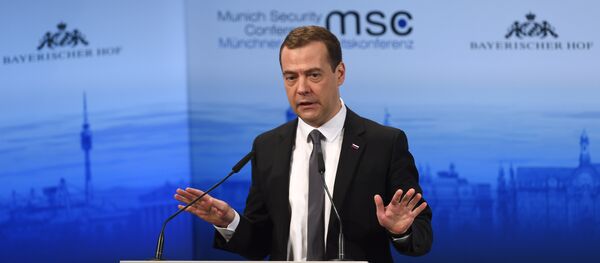Speaking about the reasons for last month’s coup attempt Mayu Kaneko said that it reflected the Turkish military’s opposition to the policies of President Erdogan’s ruling Justice and Development party.
“After coming to power in 2002 the Justice and Development party, led by President Erdogan, started to sideline the army and make it weaker. The conflict between Turkey’s traditional secularist course and the Islamists has been heating up ever since The army, this traditional symbol of secularism, has all along been wary of Erdogan’s dictatorial ways and the attempted coup we saw last month only demonstrated this,” Mayu Kaneko said.
She mentioned two reasons why the coup failed. First, it was not a case of the entire Turkish army rising against Erdogan. It was apparently initiated by those in the Air Force, while the ground forces, the Navy and police remained loyal to the regime.
Since modern Turkey was founded in 1923, the military, long seen as the guardian of the secular system established by Mustafa Kemal Ataturk, has staged several coups to prevent an Islamist comeback.
“In 1960 and 1980 all branches of the Turkish military – the ground force, the Navy and the Air Force — acted as one, but the situation in the country has changed radically ever since,” Mayo Kaneko noted.
She added that many of those who responded to President Erdogan’s call to take to the streets and thwart the coup hated Erdogan but at the very same time, were against a military overthrow of the government.
President Erdogan believes that Fethullah Gulen, an Islamist preacher currently living in exile in the US, was behind the failed coup. On July 19 Turkish Prime Minister Binali Yildirim said that he had requested the extradition of Gulen.
“The Americans argue that they can’t extradite Gulen as long as there is no hard proof of his alleged role in the coup attempt. This could undermine the efficiency of the US military campaign against Daesh as the Americans widely use Turkish military airfields to strike terrorist targets in Syria and Iraq,” Mayu Kaneko continued.
She also mentioned the problem of Kurds and the Kurdistan Workers’ party (PKK) Ankara has been fighting for so many years now.
Meanwhile, in its struggle against Daesh, Washington supports the Kurdish self-defense forces which are taking orders from the PKK.
“We should also keep a close eye on the presidential elections in the United States. If Donald Trump is elected, America could take a tougher stand against Ankara and relations between the two could deteriorate. Meantime, after Erdogan apologized for last year’s downing of a Russian bomber in Syria, relations between Turkey and Russia are now looking up,” Mayu Kaneko said.
“The mere fact that President Erdogan was the first to try to mend fences with Russia means that he is seriously worried about the situation in Turkey, which has been hit by a rash or terrorist attacks staged by Daesh and the PKK.”
Mayo Kaneko also said that fully aware of US and European worries about his crackdown of free speech and his authoritarian methods, President Erdogan is trying hard to restore good relations with Moscow as Turkey is still hurting from the devastating effect the dramatic drop in the number of Russian tourists has had on the Turkish economy.
As for Japan’s policy towards Turkey, mayo Kaneko said that unlike the US which is critical of Erdogan, Tokyo is simply watching the progress of the ongoing investigation of last month’s coup attempt in Turkey.
“Turkey has traditionally been friendly towards Japan and Prime Minister Shinzo Abe is good friends with President Erdogan. Last month’s coup attempt has had little effect on the major Japanese companies doing business with Turkey. And still, after all that happened during and after that coup attempt many in Japan now see Turkey as a dangerous country,” Mayu Kaneko said in conclusion.





